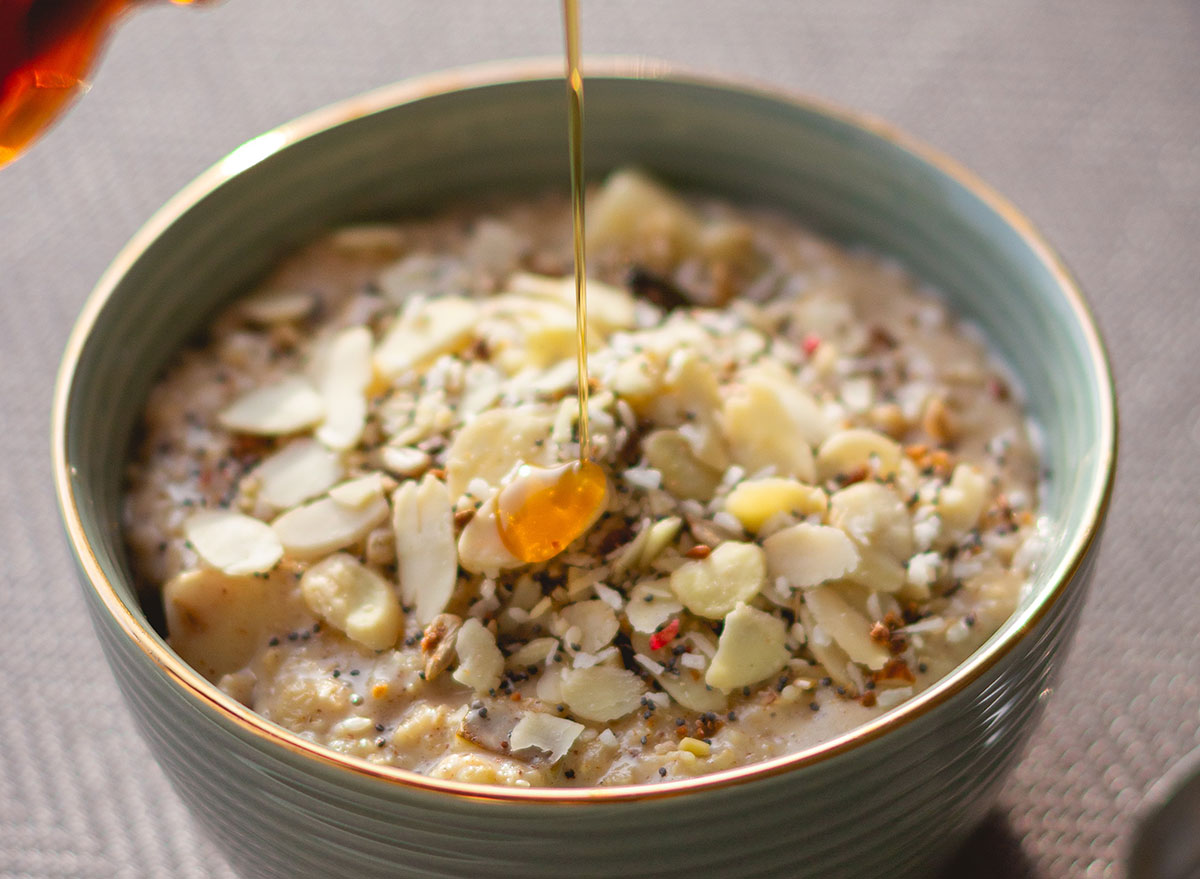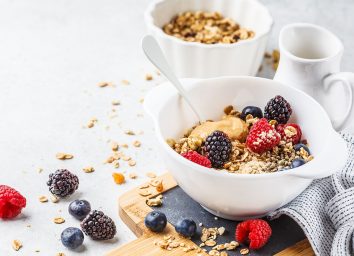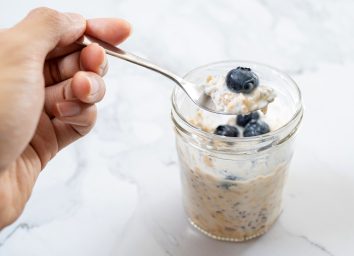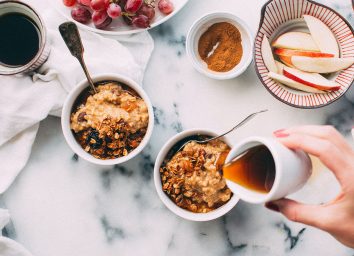Secret Effects of Eating Oatmeal, Says Science
There's no denying that oatmeal is one of the healthiest foods you can eat. Not only is oatmeal one of the best foods you can eat for weight loss, but it also lowers your cholesterol, decreases your risk of chronic diseases (which helps you live longer), and is packed with good-for-you soluble fiber. And yet, while these are the benefits of this breakfast food that people tend to know about, there are a few secret side effects of eating oatmeal that may not be as well known.
Research shows how eating oatmeal can help improve your body's health in a myriad of ways—including a few secret effects you may have never heard of before. So if you're looking for even more excuses to stir up a bowl of oatmeal in the morning, here's what the science shows. Then, be sure to read up on our list of The 7 Healthiest Foods to Eat Right Now for even more healthy eating tips.
Oats suppress your appetite.

How many times have you eaten bowl-after-bowl of cereal in the morning, and found yourself still feeling hungry after? Unless your cereal has a boost in fiber or you're eating it with other filling breakfast foods like fruit or even yogurt, you'll likely feel hungry after a mere serving of your favorite breakfast cereal.
Oatmeal, however, is another story. According to a study published by the Journal of American College of Nutrition, oatmeal has been proven to increase fullness and reduce hunger more than the average breakfast cereal.
This study also shows how energy (calorie) intake at the meal after eating oatmeal (like lunch) was significantly decreased, meaning the study participants felt satisfied after their bowl of oatmeal and ended up eating less during their next meal.
Next time you make oatmeal, top your bowl with one of these 11 Healthy Oatmeal Toppings That Help You Lose Weight.
They help with inflammation.
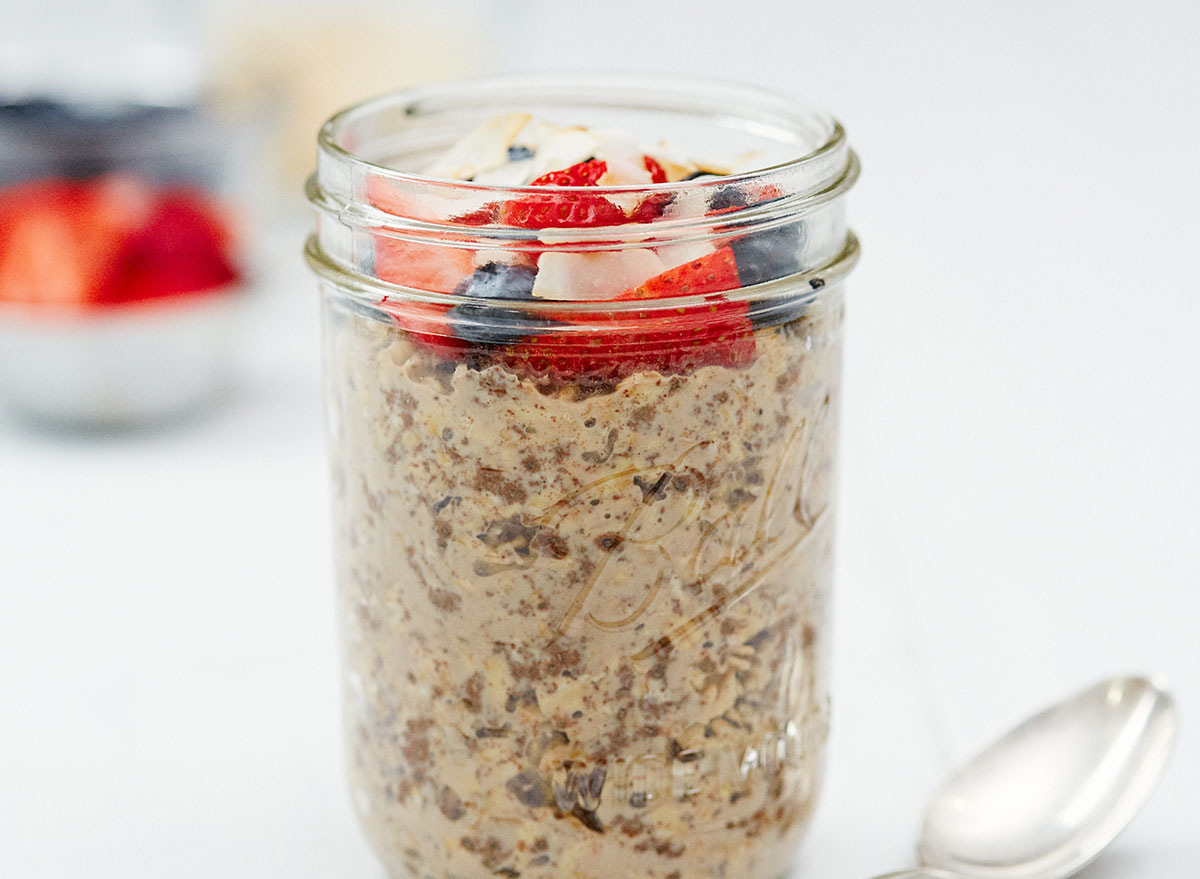
Along with lowering your cholesterol and keeping you full for longer, oatmeal also contains the antioxidant called avenanthramides, a type of polyphenol that studies show has anti-inflammatory effects.
This antioxidant has also been linked to lowering blood pressure by increasing nitric oxide production, which also lowers the risk of atherosclerosis, a disease of the arteries due to a buildup of cholesterol.
Make your mornings even easier with one of these 51 Healthy Overnight Oats Recipes!
Oats improve your insulin response.
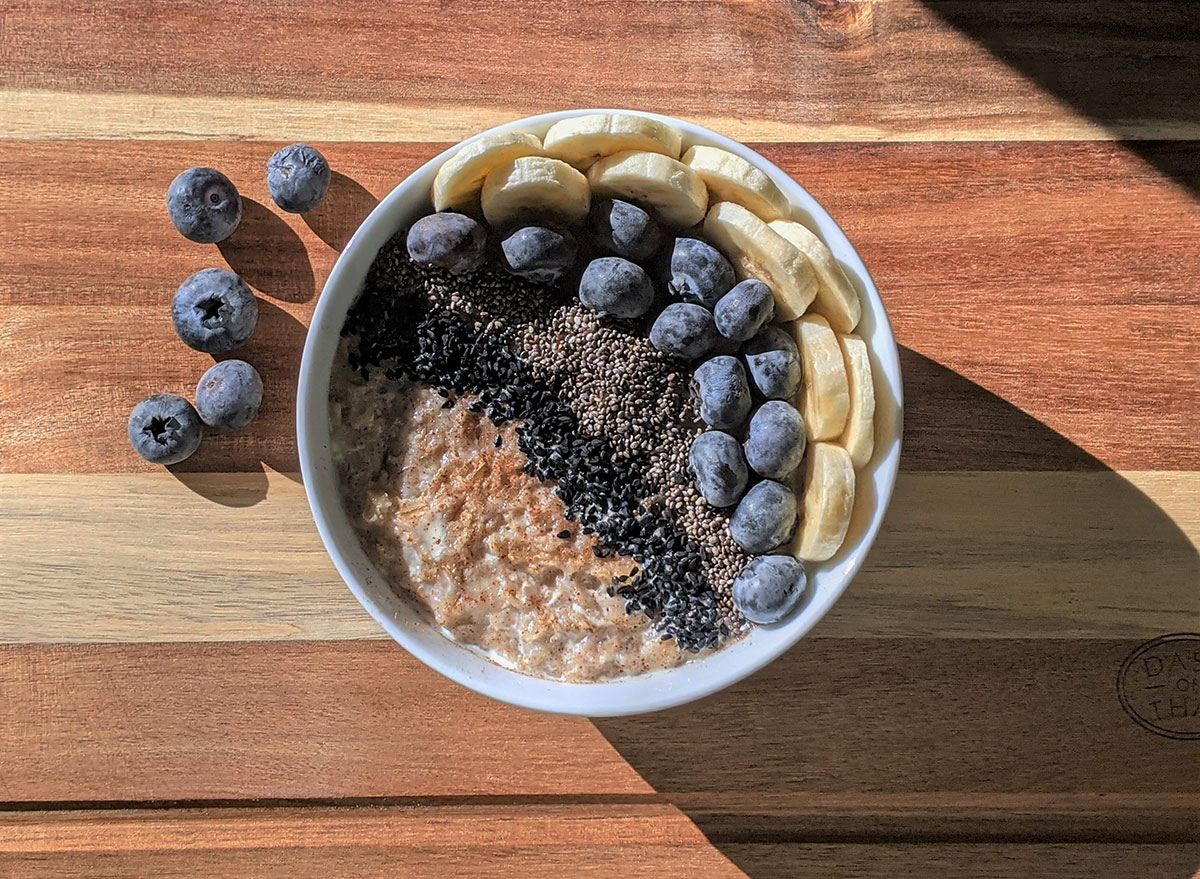
Oats are a powerful source of beta glucans, a water-soluble dietary fiber that has a beneficial role in improving one's insulin response, according to a study published in the journal Nutrients. Oatmeal helps with glucose control, which is particularly important for those with type 1 or type 2 diabetes. When your body consumes carbohydrates (like oatmeal) it breaks down into glucose. The pancreas produces insulin, which uses the glucose in the bloodstream to give you energy. Insulin helps to manage your blood sugar, and without a good response, your body could experience weight gain.
However, complex carbohydrates—like oatmeal—can help with insulin response and gives your body good energy throughout the day.
Oatmeal helps improve your gut health.
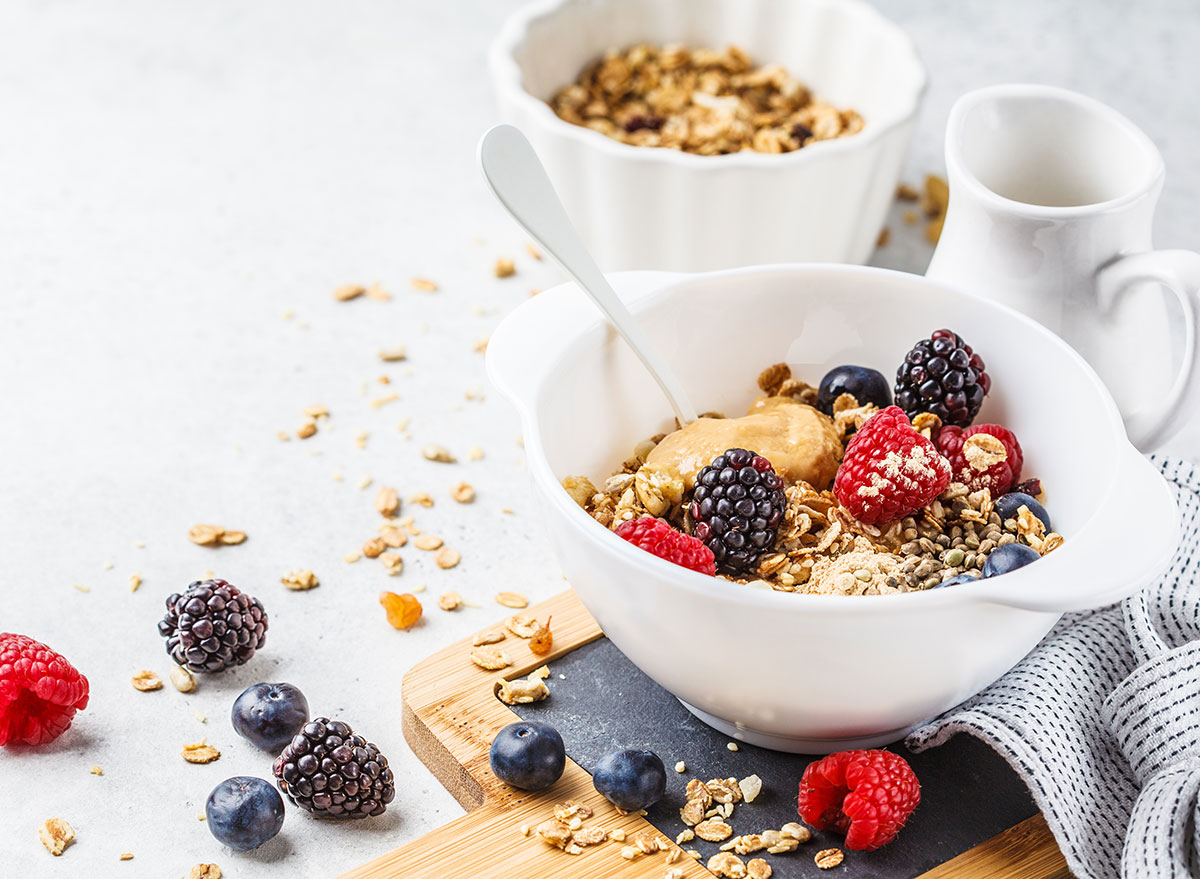
You may have heard of probiotics before and how they help you with your gut health, but what about prebiotics? Oatmeal is a type of prebiotic, which helps to feed the probiotic thanks to that beta-glucan fiber. This helps to strengthen your gut bacteria. You know the phrase "food is fuel?" In this case, oatmeal is literally a type of fuel for your gut bacteria, keeping your stomach happy—and helping your overall digestive tract.
You'll be more likely to have a healthier lifestyle.
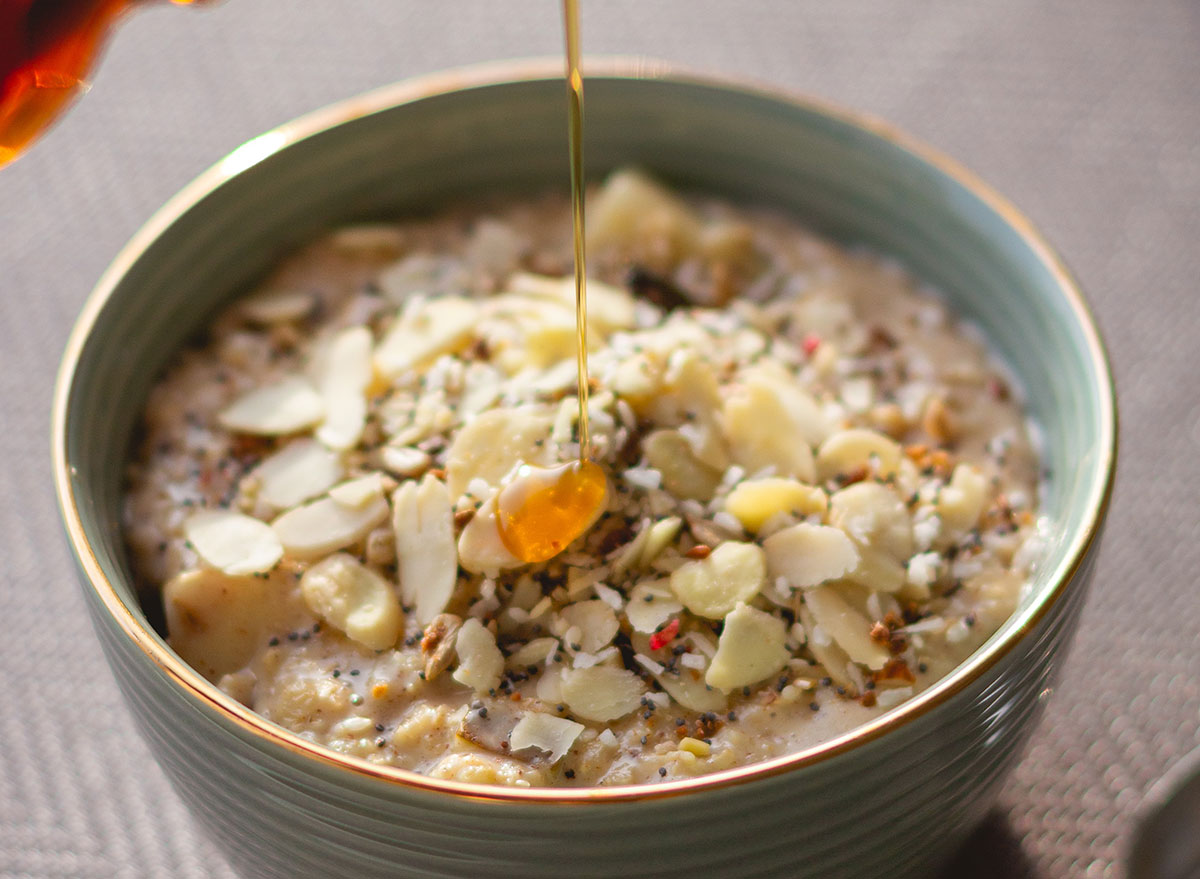
One study published in Nutrition Research found that oatmeal eaters tend to have healthier lifestyles overall. Regular oatmeal consumption from participants was linked to "better diet quality" and a lower body mass index for adults. Those who eat oatmeal regularly are shown to have a better overall nutrient intake throughout their days, meaning that your body is experiencing an overall healthier diet because of your oatmeal routine. Plus, researchers from the Harvard T.H. Chan School of Public Health found that developing healthy habits (like a healthy nutritious diet) leads to a longer lifespan.
Oatmeal for a longer life? Yeah, we can get behind that.
Get even more healthy eating tips straight to your inbox by signing up for our newsletter! After, read these next:
